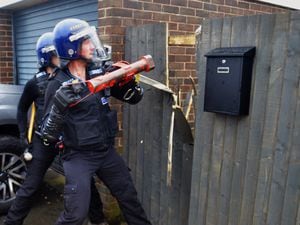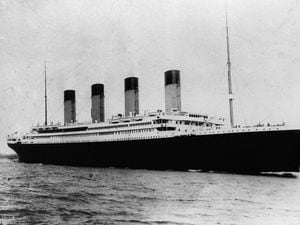Peter Rhodes: An untold story from Dunkirk
An epic evacuation, the changing nature of mopeds and the question we ought to be asking.

A READER shares the nation's irritation over people who start sentences with “So . . .” but says he's even more angered by politicians who begin their answers with “Look . . .” The ones that infuriate me are the interviewees who, when faced with a killer question, reply: “You know, the question we ought to be asking is . . .”
AMID thunderous volleys of brilliant reviews, the new Christopher Nolan film Dunkirk opens tomorrow. No movie can cover every story from the 1940 evacuation and here's one you won't find in Nolan's epic, or in any written account I have seen.
IT is the tale of the Sixth Battalion of the South Staffordshire Regiment. None of these Black Country Territorials would claim to be the bravest or the most dashing of soldiers sent over to France. They knew they had been well and truly beaten by the advancing Germans. Yet none of the many survivors I have interviewed over the years recalled any panic or pushing on the beaches. On the contrary, these part-time soldiers were well led and bound together by a strong community spirit. The secret, as they waited for the boats, was to keep the men busyand prevent them becoming defeatist. So even as the bombs fell, the South Staffs officers and NCOs organised a sports day. A pair of abandoned motorcycles were commandeered and used in races up and down the beach. It must have been a bizarre interlude but stragglers arriving from other units sensed the cohesion of this battalion and attached themselves to it. Which is why the Sixth Battalion claimed the distinction of being the only unit of the British Army to bring more soldiers out of France than it took in.
NEARLY 30 years ago I interviewed Tom Rutherford, a young platoon commander with the South Staffs at Dunkirk. He made the point that no movie could capture the random nature of warfare, because it is all so unbelievable. He recalled: “We got the order to ditch all our transport in the canal. It was all so bizarre. It was nothing like the war films. I remember we were sitting out, having a meal and then there was a sudden bang and Ted Price, the company clerk, had an arm off. Bang, just like that. And then it was all peaceful again.”
HOW language evolves. I made the mistake earlier this week of referring to crimes committed by kids on “mopeds.” Although this term is widely used, “moped” more accurately describes a small motorbike which can be pedalled (hence the “ped” bit). The machines used by most young thugs look more like motor scooters. But the word “scooter” now causes confusion, having been hijacked by the mobility-scooter industry which used to produce things called invalid carriages which were not really carriages so much as a self-powered Bath chair. So the reason we now call mopeds scooters can be traced directly to the demise of the Bath chair. You know, somewhere in this there's a PhD thesus.





